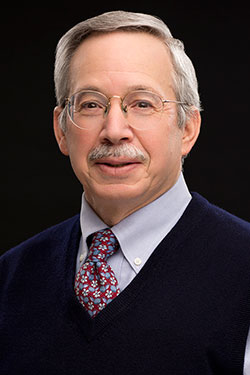Penn GSE’s International Literacy Institute wins UNESCO literacy prize
August 11, 2014 — UNESCO on Monday awarded the International Literacy Institute (ILI), based at the University of Pennsylvania Graduate School of Education, the Confucius International Literacy Prize for its technology-based program supporting literacy in South Africa.
 ILI and the Molteno Institute for Language and Literacy, based in South Africa, partnered together for the Bridges to the Future Initiative. Working in three indigenous African languages and English, the initiative improves access to quality educational materials, and also builds on languages that are highly motivating to historically disadvantaged populations in South Africa.
ILI and the Molteno Institute for Language and Literacy, based in South Africa, partnered together for the Bridges to the Future Initiative. Working in three indigenous African languages and English, the initiative improves access to quality educational materials, and also builds on languages that are highly motivating to historically disadvantaged populations in South Africa.
The goal is to provide every South African the tools to succeed, with a long-term mission of helping bring a significant part of the population out of poverty.
The initiative is the first program in South Africa to provide cross-age materials to children, youth and adults on early literacy, while paying attention to the content needs and different motivations of variously aged learners.
“The initiative provides a self-paced and multi-lingual learning environment with continuous remediation and support opportunities in an exciting and engaging format to learners,” said Penn GSE’s Dr. Dan Wagner, UNESCO Chair and Professor, and the ILI Director and Co-Founder, and head of GSE’s International Educational Development Program.
The Confucius Prize, announced by the UNESCO Director-General, Irina Bokova, will be awarded on International Literacy Day, September 8, in Bangladesh.
ILI’s work in South Africa builds on a similar program it has operated in India since 2002. A tablet intervention program starting in South Africa this year will expand the project beyond classroom walls, allowing children and parents to work together from home.
UNESCO and Penn partnered to launch ILI in 1994 to provide leadership in research, development, and training in the broad field of international literacy and educational development, with an emphasis on developing countries.
Wagner has spent many years trying to help improve literacy around the world. He has also worked on a number of projects related to the United Nations Millennium Development Goals for basic education and literacy so that children everywhere will be able to learn basic skills and complete a full course of primary schooling. In his role as head of the IEDP, Wagner and colleagues are providing opportunities for GSE students to work in dozens of developing countries.
Recently, Wagner has begun looking at the potential of Massive Open Online Courses to further spread specialized learning to underserved populations across the globe (see www.moocs4d.org).
